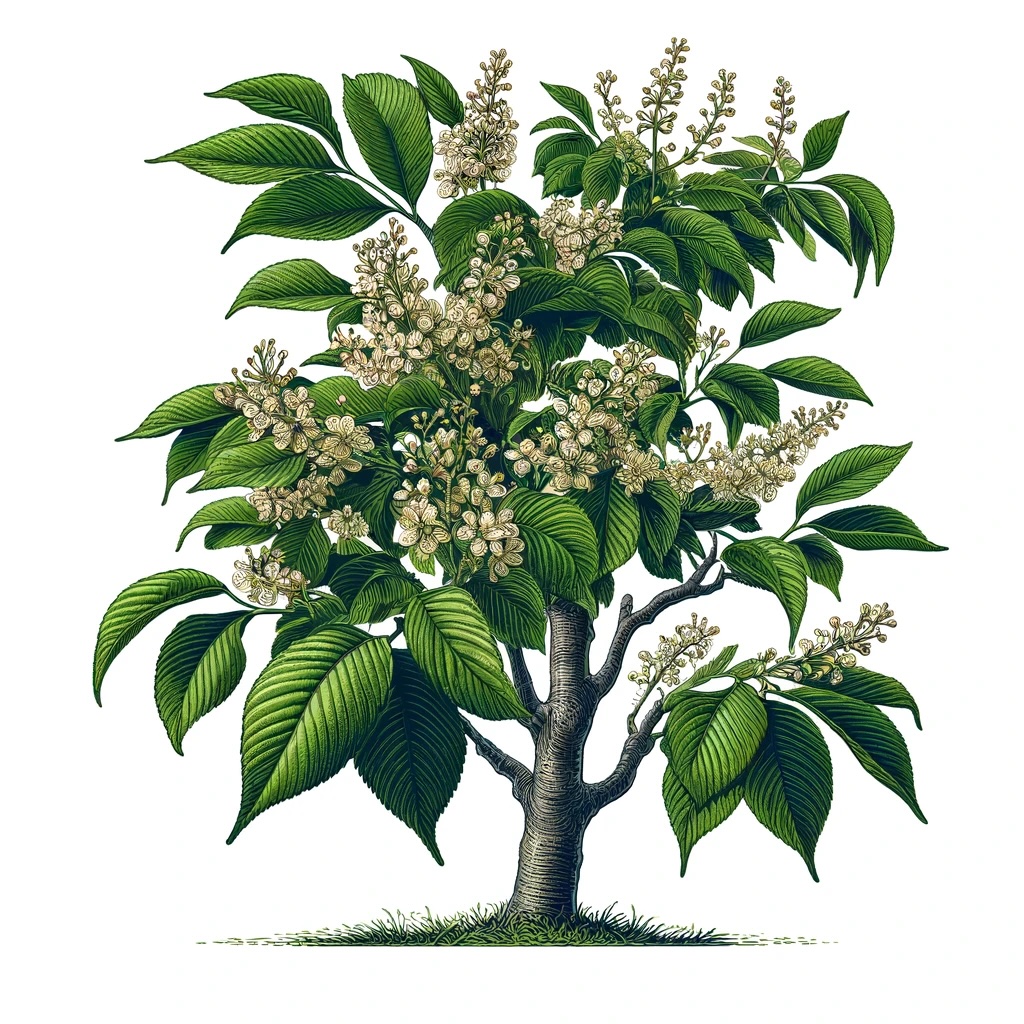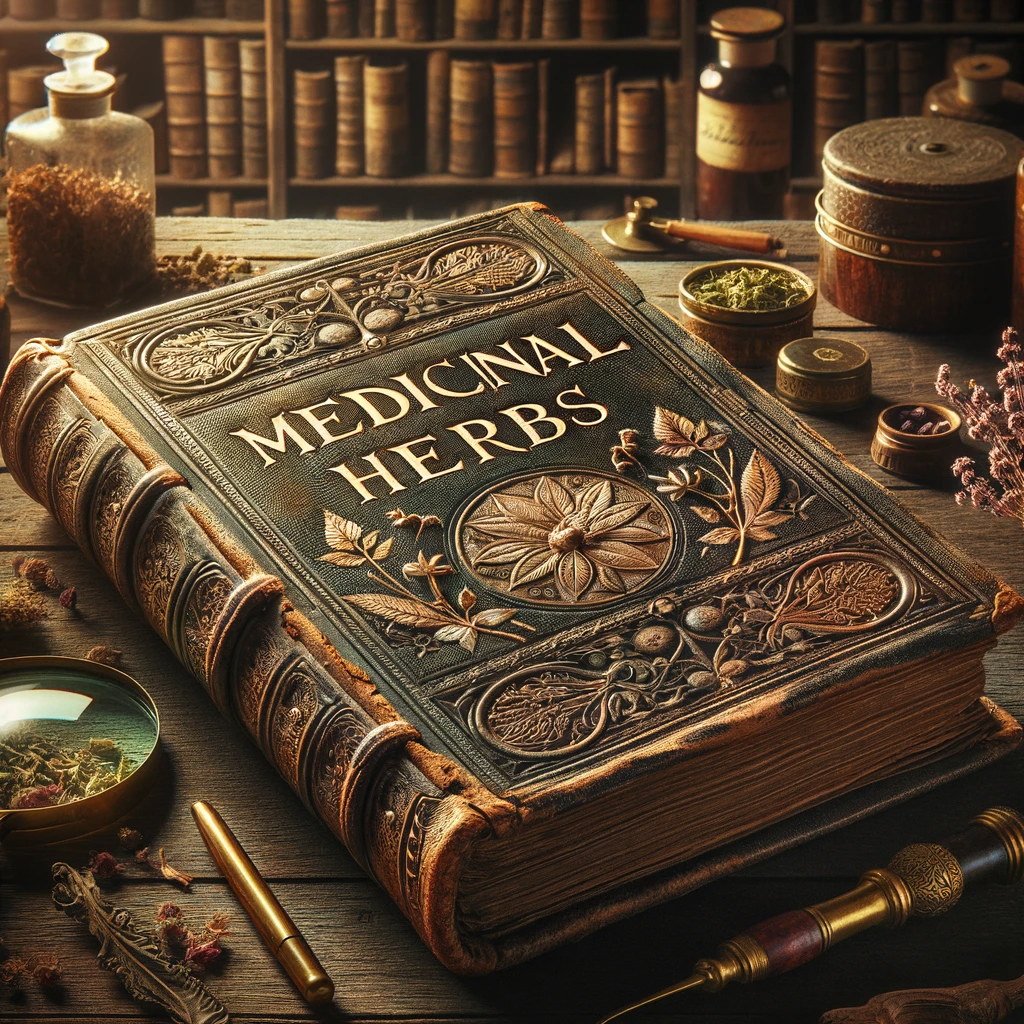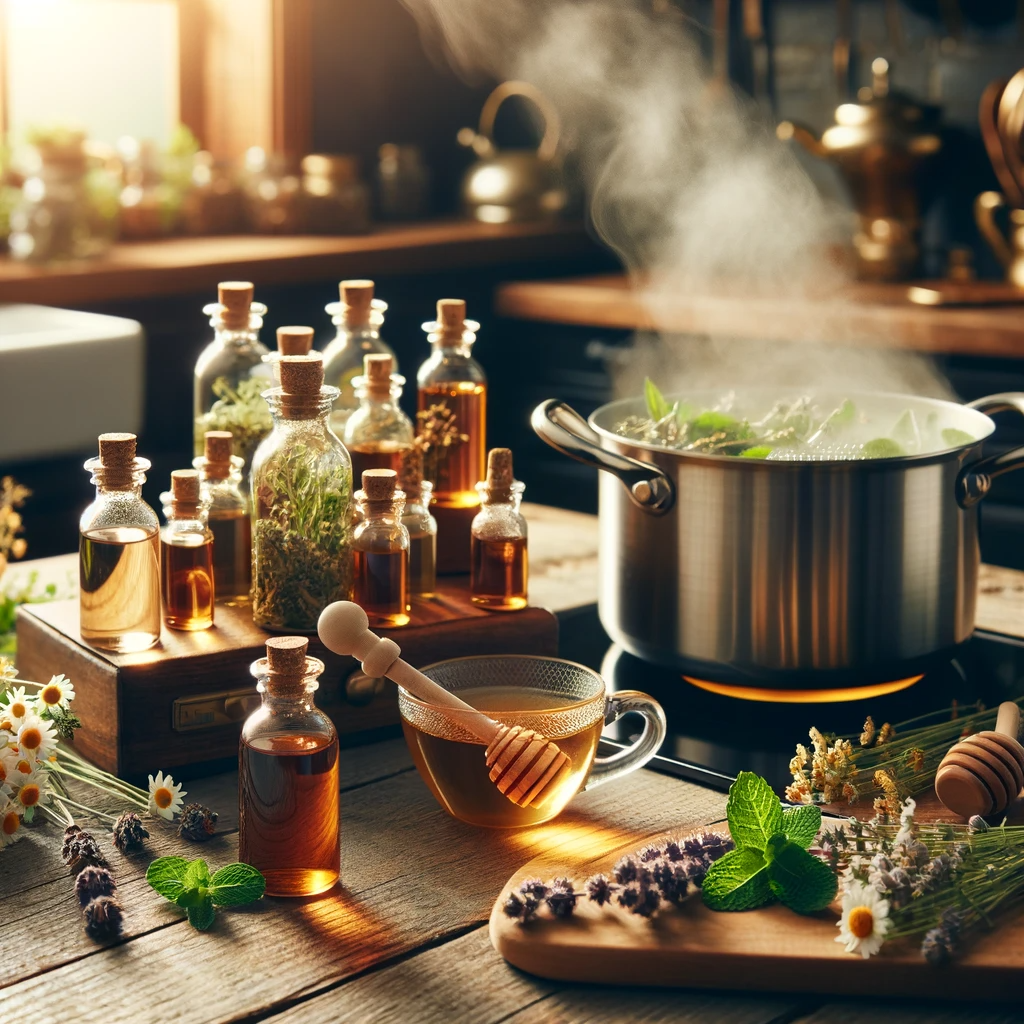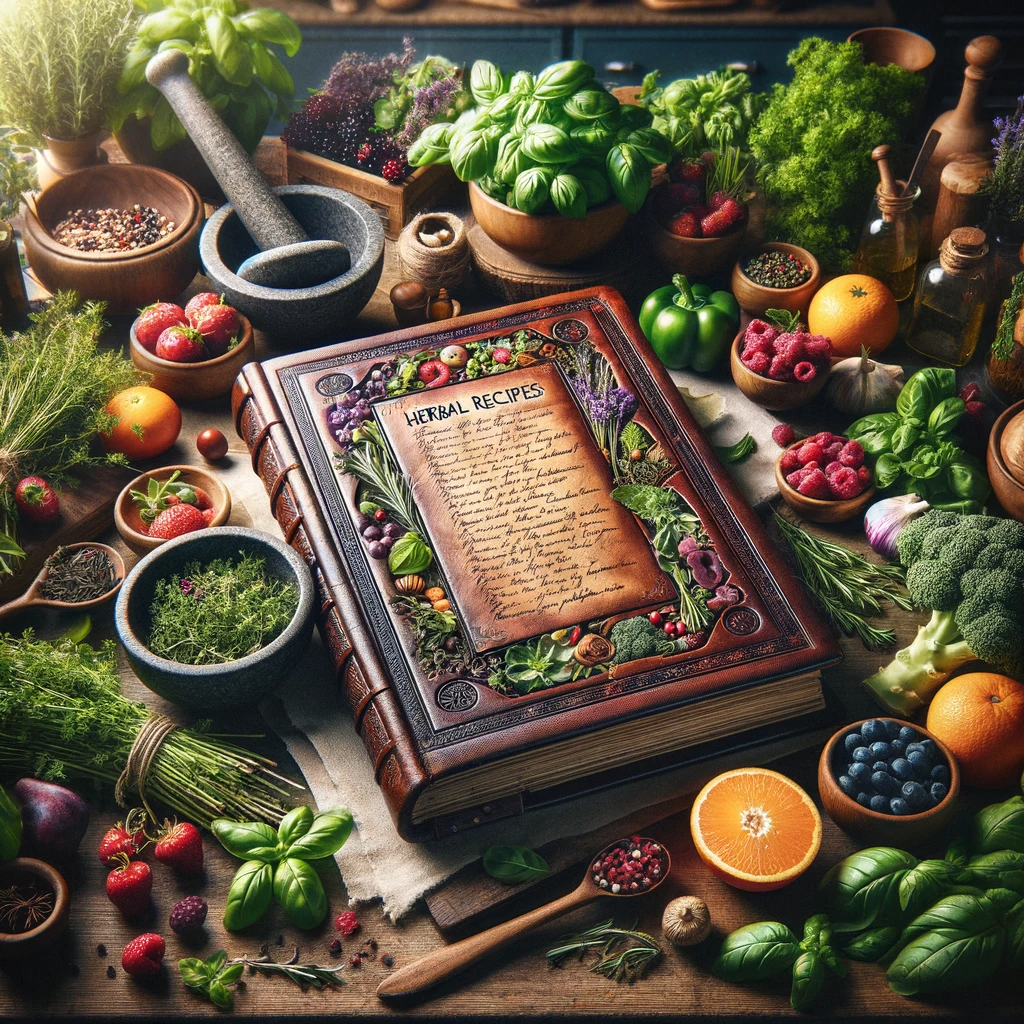This website contains affiliate links for products I use and love. If you take action (i.e. subscribe, make a purchase) after clicking a link, I may earn some tea money, which I promise to drink while creating more helpful content like this.
- Home
- Herb Index
- ashwagandhamonograph
Ashwagandha:
The Herb of Rejuvenation and Vitality
Jump to Recipes
Ashwagandha,
scientifically known as Withania somnifera, is a revered herb in traditional
Ayurvedic medicine. Also known as "Indian ginseng" or "winter
cherry," this adaptogenic herb has a long history of use in India and
neighboring regions. Ashwagandha is valued for its ability to promote vitality,
enhance the body's resilience to stress, and support overall well-being.
Common Name: Ashwagandha
Latin Name: Withania somnifera
Family: Solanaceae (Nightshade family)

The information provided on this website is for educational purposes only, and is not FDA approved. It is not to be considered health advice. Always do your own research and seek the guidance of a qualified healthcare practitioner before working with any herb. Herbal Ella is not liable for any action or inaction you take with the materials and information provided. Read here for more information.
Botanical Overview
Identification: Ashwagandha is a small shrub with green, elliptical leaves and small, greenish-yellow flowers. It produces red, berry-like fruits upon maturity.
Parts Used Medicinally: The root and leaves of the Ashwagandha plant are primarily used for their therapeutic properties.
Habitat: Ashwagandha is native to the arid regions of India, the Middle East, and parts of Africa. It thrives in dry and subtropical climates.
Herbal Actions
Adaptogenic: Ashwagandha is renowned for its adaptogenic properties, helping the body adapt to various stressors and promoting overall balance.
Sedative: It possesses mild sedative effects, making it useful for promoting relaxation and improving sleep quality.
Anti-Inflammatory: Ashwagandha has anti-inflammatory properties that can benefit various health conditions.
Immunomodulatory: It supports a healthy immune system and may enhance immune responses.
Rejuvenating: Known as a Rasayana in Ayurveda, Ashwagandha is believed to promote longevity and vitality.
Energetic Qualities and Taste
Energetic Properties: Ashwagandha is warming and calming, providing a sense of grounding and stability.
Taste: The root has a bitter and slightly astringent taste, while the leaves are milder in flavor.
Medicinal Uses
- Stress Management: Ashwagandha is commonly used to reduce stress and anxiety, helping individuals cope with life's demands.
- Sleep Aid: Its mild sedative properties make it valuable for improving sleep quality and managing insomnia.
- Cognitive Function: Ashwagandha may enhance cognitive function, memory, and concentration.
- Immune Support: It supports a robust immune system, helping the body fend off infections.
- Anti-Inflammatory: Ashwagandha's anti-inflammatory properties may alleviate symptoms of inflammatory conditions.
- Hormonal Balance: It can support hormonal balance, particularly in women.
- Reproductive Health: Ashwagandha is used to support male reproductive health and may enhance fertility.
Culinary Uses
Ashwagandha is not typically used as a culinary herb. Instead, it is consumed in the form of supplements, teas, or tinctures for its medicinal benefits.
Contraindications and Precautions
- Pregnant and nursing women should consult a healthcare professional before using Ashwagandha.
- Individuals with autoimmune conditions should exercise caution, as Ashwagandha may stimulate the immune system.
Cultivation Tips
- Ashwagandha can be grown in well-drained soil and full sun.
- It is a perennial plant that requires warm temperatures and is best suited for regions with hot summers.
- Harvest the roots in the fall after the plant's leaves have withered.
Folklore and Romantic Associations
- Ashwagandha has a deep-rooted connection to the romantic and passionate aspects of life. In Indian folklore, it is often referred to as the "herb of desire" due to its reputation as an aphrodisiac.
- Ancient texts mention the use of Ashwagandha to kindle passion and enhance intimacy in relationships.
- Its name, "Indian ginseng," alludes to its reputation for boosting vitality and stamina, qualities associated with a fulfilling love life.
Trade
and Currency
- Ashwagandha has historical significance beyond its medicinal uses. It played a role in trade and commerce as cacao beans were used as a form of currency in some ancient civilizations.
- Its value extended beyond the realms of health, highlighting its cultural and economic importance in ancient societies.
Divine
and Sacred Herb
- In addition to its everyday use, Ashwagandha held a sacred place in the rituals and ceremonies of indigenous Mesoamerican cultures, particularly the Aztecs and Mayans.
- These ancient civilizations believed that Ashwagandha possessed divine properties and could bridge the gap between the earthly and spiritual realms.
Symbol
of Love and Romance
- Beyond its role in herbalism and trade, Ashwagandha has also been associated with love and romance.
- In various cultures, it has been considered an aphrodisiac and symbolizes love and the passionate aspects of life.
Ashwagandha's rich history, both as a healing herb and a symbol of vitality, showcases its multifaceted significance in the realms of health, culture, and romance.
Recipes and Preparations
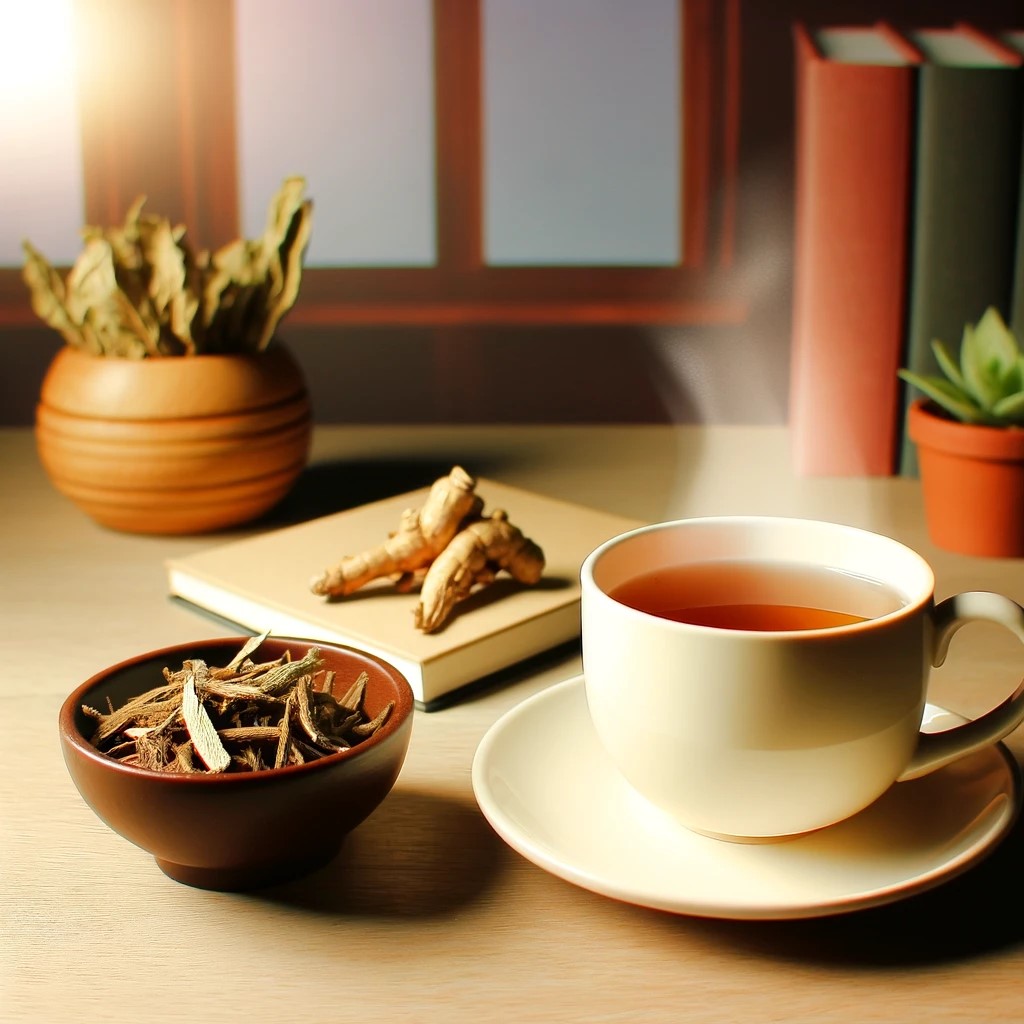
Ashwagandha Tea
Ingredients:
- 1 teaspoon of Ashwagandha root powder
- 1 cup of hot water
- Honey (optional)
- Citrus juice (optional)
Instructions:
1. Boil water and let it cool slightly (about 1-2 minutes).
2. Add Ashwagandha root powder to a cup.
3. Pour the hot water over the Ashwagandha powder.
4. Allow it to steep for 5-10 minutes, depending on your taste preference.
5. Strain the tea to remove any sediment.
6. Sweeten with honey and add a splash of citrus juice if desired.
- Benefits: This tea is known for its calming and stress-relieving properties. It can be consumed in the evening to promote relaxation and improve sleep quality.
Ashwagandha Tincture
Ingredients:
- High-proof alcohol (e.g., vodka or brandy)
- Glass jar with a tight-fitting lid
Instructions:
1. Fill a glass jar halfway with dried Ashwagandha root.
2. Pour enough high-proof alcohol over the root to completely cover it.
3. Seal the jar tightly and store it in a cool, dark place for 4-6 weeks, shaking it daily.
4. After the steeping period, strain the tincture into a clean glass bottle, discarding the solids.
5. Label the bottle with the date and tincture name.
- Usage: Take a small dropperful (usually 20-30 drops) of the tincture diluted in water or juice. Consult a healthcare professional for proper dosage guidance.
- Benefits: This tincture is a convenient way to enjoy the adaptogenic benefits of Ashwagandha. It can support stress management, energy, and overall well-being.
Ashwagandha Powder
Ingredients:
- Dried Ashwagandha root
Instructions:
1. Ensure that the Ashwagandha root is completely dried.
2. Cut the dried root into smaller pieces to facilitate grinding.
3. Grind the dried root pieces into a fine powder using a spice grinder or mortar and pestle.
4. Store the Ashwagandha powder in an airtight container in a cool, dark place.
- Usage: Add a teaspoon of Ashwagandha powder to smoothies, beverages, or recipes as desired.
- Benefits: Ashwagandha powder is a versatile way to incorporate this adaptogenic herb into your daily routine. It can help support stress resilience and overall vitality.
Recent Articles
-
Wild Cherry Monograph: Wild Cherry: Nature's Respiratory Ally
May 02, 24 04:52 PM
Discover the healing potential of Wild Cherry with our comprehensive monograph. Explore its benefits and uses for respiratory health. -
DIY Herbal Remedies for Respiratory Health
May 02, 24 03:46 PM
Explore easy DIY herbal remedies for respiratory health with Herbal Ella. Learn to make teas, tinctures, and more to breathe better naturally -
Understanding the Respiratory System - Anatomy and Functions
May 02, 24 03:23 PM
Discover the respiratory system's anatomy and functions with clear visuals and simple explanations to keep you breathing healthily
* Privacy Policy * Disclaimer *

